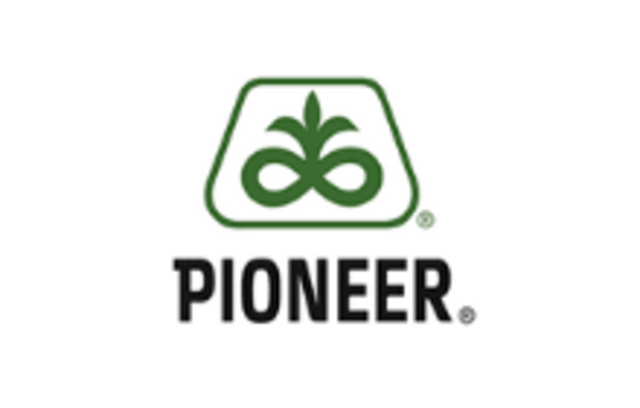
Members' Directory

Last name :
LANGLADE
First name :
Nicolas
Entrance year :
2014
Occupation :
Research Director
Company :
INRAE - Laboratoire des Interactions Plantes Micro-organismes * LIPM
Phone :
(33) 5 61 28 57 78
Email :
[hidden for users not logged in]
Birthdate :
1975/11/12
Address :
24 chemin de Borde Rouge,
Auzeville CS 52627, 31326 CASTANET-TOLOSAN CEDEX / France
Main fields of interest :
- Seeds, genetics
- Plant physiology
Professional experience : Inrae - Institut National de Recherche pour l'Agriculture, l'Alimentation et l'Environnement (France)
* Research Director - 2016 – now - Toulouse, France
* Senior Researcher - 2007 –2015 - Toulouse, France
I manage a research project on sunflower response to water deprivation. I use genetic, genomic and high-throughput phenotyping tools to work out which genes (and their network) could make sunflowers more tolerant to drought. To achieve this I combine different approaches linking crop models and genetical genomics.
On the basic side, I am interested in the evolution of new phenotypic properties during the adaptation to new environmental conditions. More specifically I am interested in the benefit of heterozygocity (i.e; heterosis) to adapt to new environment and how it is controlled at the molecular level.
* Post-doctoral researcher - 2006 – 2007 - ENS Lyon , France
I was studying the development of the epidermis of maize kernel in the laboratory of Plant Development in the group of Peter Rogowsky
* John Innes Centre - * Chercheur post-doctorant - 2002 – 2006 - Norwich, Royaume-Uni
I was in charge of a research project lead by Enrico Coen to study the evolution of leaf and flower morphology and flower colour in snapdragon (Antirrhinum).
* University of Neuchâtel * Assistant -Doctorant - 1998 – 2002 - Neuchâtel, Suisse
I was in charge of my research project to understand how plants deal with P deficiency by studying cluster root development and physiology in white lupin
Education : * Habilitation à Diriger les Recherches, Institut National Polytechnique de Toulouse, Toulouse, France, 2015
* Doctorat ès Sciences, University of Neuchatel, Neuchatel, Switzerland, 2002
* Master in Biochemistry, University of Poitiers, Poitiers, France, 1998
Selected publications : * Gosseau, F. et al. Heliaphen, an Outdoor High-Throughput Phenotyping Platform for Genetic Studies and Crop Modeling. Front. Plant Sci. 9, (2019).
* Fernandez, O. et al. Metabolomic characterization of sunflower leaf allows discriminating genotype groups or stress levels with a minimal set of metabolic markers. Metabolomics in press, (2019).
* Bonnafous, F. et al. Comparison of GWAS models to identify non-additive genetic control of flowering time in sunflower hybrids. Theor. Appl. Genet. 131, 319–332 (2018).
* Blanchet, N. et al. Data describing the eco-physiological responses of twenty-four sunflower genotypes to water deficit. Data in Brief 21, 1296–1301 (2018).
* Mangin, B. et al. Molecular diversity of sunflower populations maintained as genetic resources is affected by multiplication processes and breeding for major traits. Theor Appl Genet 130, 1099–1112 (2017).
* Mangin, B. et al. Genetic control of oil yield plasticity to combined abiotic stresses using a joint approach of crop modeling and genome-wide association. Plant, Cell & Environment 40, 2276–2291 (2017).
* Mangin, B. et al. Genomic Prediction of Sunflower Hybrids Oil Content. Front. Plant Sci. 8, (2017).
* Debaeke, P., Casadebaig, P., Flenet, F. & Langlade, N. Sunflower crop and climate change: vulnerability, adaptation, and mitigation potential from case-studies in Europe. OCL 24, D102 (2017).
* Badouin, H. et al. The sunflower genome provides insights into oil metabolism, flowering and Asterid evolution. Nature 546, 148–152 (2017).
* Fernandez, O. et al. Fortune telling: metabolic markers of plant performance. Metabolomics 12, 158 (2016).
* Marchand, G. et al. Bridging physiological and evolutionary time-scales in a gene regulatory network. New Phytologist 203, 685–696 (2014).
* Casadebaig, P. et al. Increased genetic diversity improves crop yield stability under climate variability: a computational study on sunflower. arXiv preprint arXiv:1403.2825 (2014).
* Marchand, G. et al. A biomarker based on gene expression indicates plant water status in controlled and natural environments. Plant, Cell & Environment 36, 2175–2189 (2013).
* Cadic, E. et al. Combined linkage and association mapping of flowering time in Sunflower (Helianthus annuus L.). Theor Appl Genet 126, 1337–1356 (2013).
* Rengel, D. et al. A gene-phenotype network based on genetic variability for drought responses reveals key physiological processes in controlled and natural environments. PLoS ONE 7, e45249 (2012).









